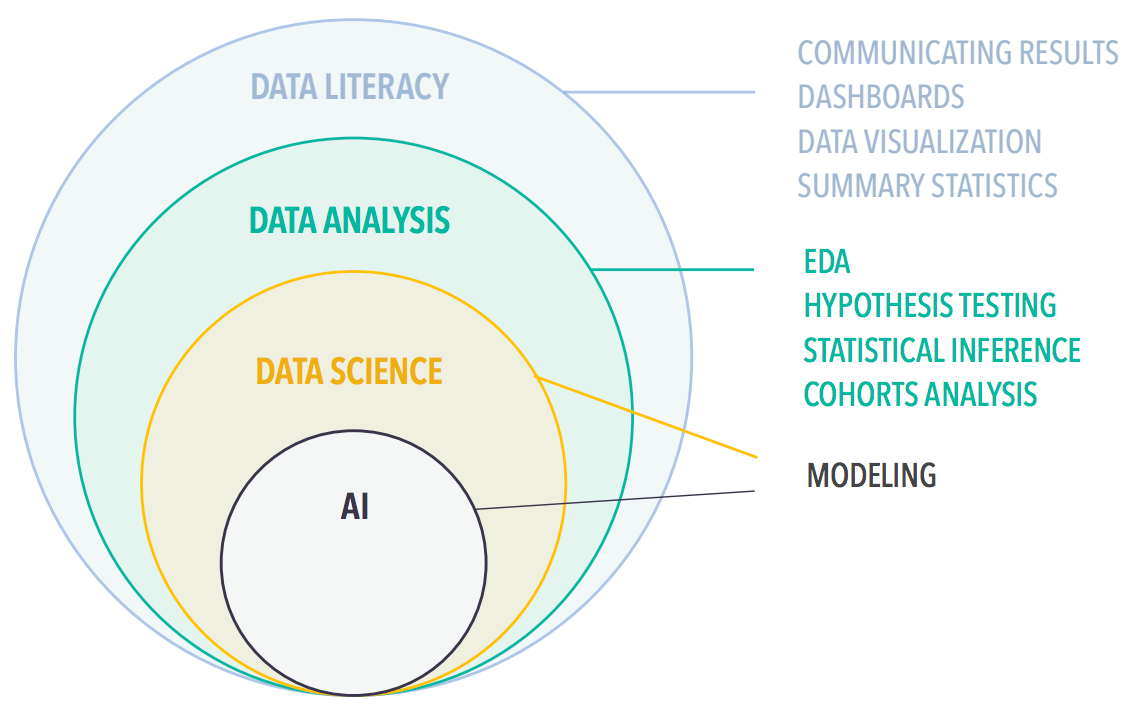-
Solution overview
Develop the technical skills that Fortune 500 enterprises and the public sector want.
-
U.S. Department of State (Cyber Advance for Women in MENA)
Build your skills and launch your career in Cybersecurity.
-
USAID Jordan (Tech for Jobs)
Increase your data analytics capabilities with this free program.
How are Data Science, Data Literacy, and AI different?
Upskill Your Workforce
Definition
-
Data Science
-
Data literacy
Data literacy is the ability to understand, communicate with, interpret, ask questions about, and make inferences from data. Data literacy is a skillset that empowers all levels of workers to gain insights and make business decisions, even without programming experience or a specialized technical background.
-
Artificial intelligence (AI)
How are Data Science, Data Literacy, and AI different?
AI is just one component of data science. It is an advanced form of data modelling where the “author” of the model does not know exactly how the model works (just as we do not know exactly how our brains function), yet the model still gives useful results.
Typical data science models are explicit - that is, the author knows exactly what the program is doing and why. These models are extremely valuable and require a similar amount of expertise as AI to create. The difference is that AI can tackle some more complex problems (like artificial vision) whereas data science models efficiently tackle more tractable problems (like predicting future sales accounting for seasonality).
In contrast to AI and data science, data literacy has us take a step back from the weeds of manipulating data and instead has us communicating with data. That is, being able to read and interpret visualizations and summary statistics to draw accurate conclusions from data. Moreover, data literacy allows us to effectively communicate those conclusions to anyone, regardless of their background.
The below graphic provides an overview of the relationship between data literacy, data analysis, data science, and AI.


.png?width=207&height=108&name=Mega%20menu%20%E2%80%93%20Featured%20Image%20Template%20(1).png)



